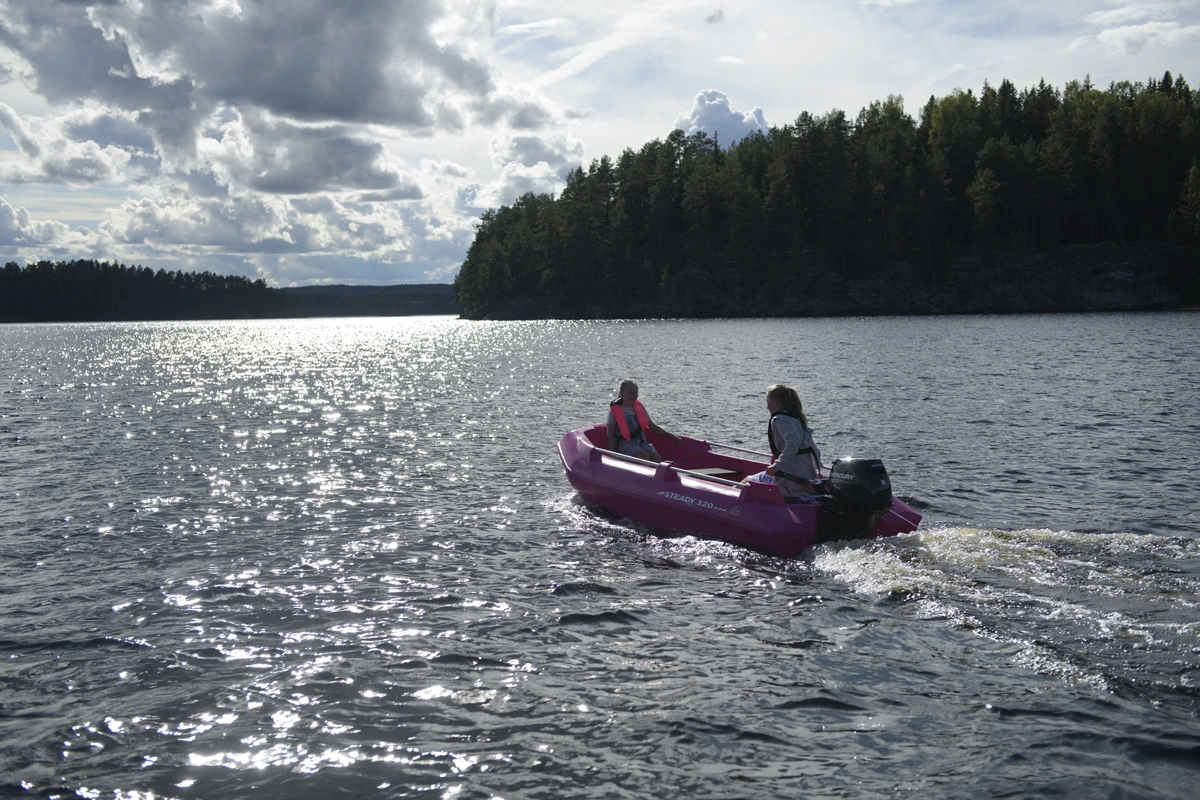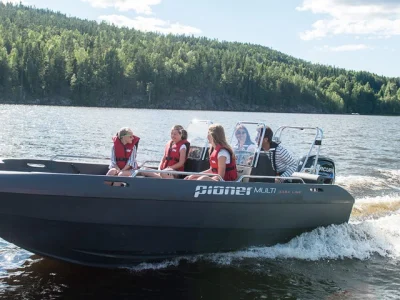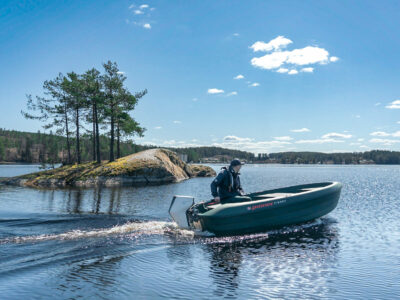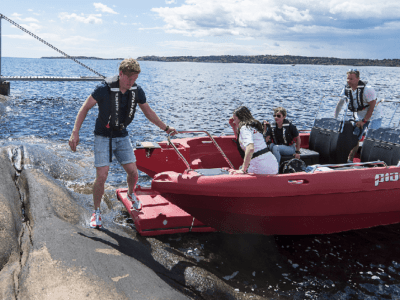Boat sense, for your own safety and the safety of others

Personal floatation devices should be worn at all times onboard, and you should stay seated when the boat is moving. If you need to change places, this should be done one person at a time.
Check the boat is evenly loaded and well balanced to avoid heeling to one side.
No matter whether the boat is large or small, for safety reasons, it is important that more than one person onboard knows how to operate the boat. Starting and stopping the engine, driving, steering and mooring are things children can also learn.
If an accident were to happen, it is important that everyone knows what should be done.
If someone falls into the water, stop the boat immediately. When getting the person back onboard, this is always done from the back of the boat. Always have something between you and the person in the water, such as e.g. a paddle. This “extended arm” reduces the risk of you falling overboard yourself.
If you need to attract the attention and help of other boats, slowly wave both arms above your head and to the sides.
It is always a good idea to have a spare paddle or oars if the engine fails. Make it a habit to always tell someone where you are going and how long you intend to be away.
Alcohol and boating do not go together.
To preserve the camaraderie among boat people, there are a number of unwritten rules that are largely a matter of common sense.
Reduce your speed when you enter the harbour to avoid the risk of collision. If you have a larger boat with a powerful engine that creates big waves, you should obviously slow down when passing smaller boats, kayaks etc.
When you are moored on a jetty, it is good practice to help other boats to tie up etc., when they are mooring. Do not leave baggage and rigging on the jetty, you should store everything on your boat so you do not block the way for others. Also avoid playing loud music or shouting, and show consideration for others.
If you have moored to refuel, you should leave the jetty when you have finished to leave room for others to moor.
When you have moored in a natural bay, it is not the done thing to “reserve” an area on shore for your boating friends by e.g. arranging deckchairs there. First come first served applies.
As a beginner, it is better to ask than assume. Boat culture is more about helping and supporting each other than is often the case in other contexts.





